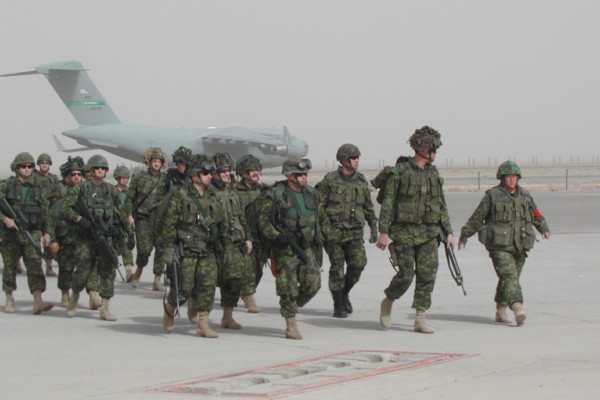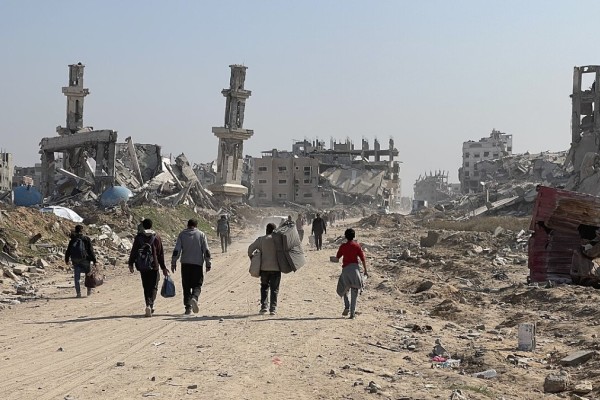The inhumanity of Pakistan’s forced deportation of Afghan refugees
More than 300,000 Afghans have been deported from Pakistan since October

Refugees from Afghanistan in Pakistan, near Islamabad, 2018. Photo from Wikimedia Commons.
Canada recently passed a milestone by announcing the resettlement of more than 40,000 Afghan refugees since the fall of Kabul in August 2021. Yet, with many applications still pending, the federal government has a moral responsibility to assist Afghan refugees who continue to flee the oppressive rule of the Taliban.
It has been just over two weeks since Pakistan put in motion its plan to forcibly deport 1.7 million Afghan refugees who have been living in the country without legal status. This shameful and inhumane policy promises to plunge countless lives into insecurity and despair. For women and girls these deportations will be especially painful, and for many other Afghans including journalists, religious minorities and activists, they sound the ominous bell of a death sentence.
More than 300,000 Afghans have been deported since October, when Pakistan formally launched its crackdown on undocumented foreigners. Many others are awaiting resettlement to countries including the UK, the US, Canada, and Germany.
Under Taliban rule, there continues a relentless and well-documented storm of violence, forced dispossessions, the curtailment of women’s rights, and a widespread crackdown on dissent. In the last month alone, Hazaras have been targeted in mosques, sports club, and in a recent deadly bus attack.
As winter creeps over Afghanistan, more than 15 million people are facing acute food insecurity while issues around housing, unemployment, and a recent ban on girls’ education will compound the already dire conditions refugees had initially fled.
Pakistani state officials have set up a hotline and are offering rewards to round up Afghan refugees. They have established deportation centres and placed restrictions on what returnees can bring with them—livestock and cash in excess of 50,000 rupees (roughly $175) must be left behind. Law enforcement officers have also been confiscating personal belongings and cash below that threshold.
Afghan refugees have been placed in deportation containers en route to Afghanistan, which has resulted in numerous deaths and injuries. The homes of refugees are being bulldozed by state authorities, while other properties have been seized by the state. Pakistani police have reportedly harassed, assaulted, extorted, and arbitrarily detained Afghan men, women, and children. This dehumanization and violence must stop.
Pakistan is not a signatory to the 1951 Refugee Convention. Yet, it has ratified the UN Convention Against Torture and must fulfill its responsibilities to not forcefully return any person to a state where they will face a real risk of torture or persecution.
The Pakistani government claims that only “illegal” refugees and undocumented Afghans are being deported, but officials are continuing raids and going “door to door” to expel Afghans indiscriminately. There are reports that Afghans who were born in Pakistan and possess proper documentation are nevertheless being discriminated against, harassed, and deported, with officials tearing apart proof of refugee cards. Recently, the government announced that even those with legal documents will be expelled.
First, second, and third generation Afghans have called Pakistan home for years. Many will be returning or going to Afghanistan for the first time without anything awaiting them. They will be forced to start all over again. The Pakistani government did not fulfill its promises of granting proper documentation to Afghans, as obstacles and delays continue to prevent the acquisition of valid refugee status and block pathways to citizenship.
Pakistan has promised that the expulsions will be completed in a “phased and orderly manner,” but Afghan refugees are not being treated with dignity or fairness. Thousands at the border crossings are without proper shelter, food, water, heating sources, and access to a washroom. The Pakistani government has also blocked thousands of containers filled with goods intended for the Afghan market.
Afghans must not be scapegoated for the difficulties facing the Pakistani state including security threats, political instability, corruption, and an ongoing economic crisis. Pakistan has also received significant financial support over the decades from organizations and the international community to support Afghan refugees, and it has an obligation to continue providing refuge to the most vulnerable.
Afghans have played a role in helping to build the economy of Pakistan for over 40 years while also being exploited as cheap labour. The refugee crisis is a byproduct of Pakistan’s regional and internal policy agenda, reflected in its creation of the Taliban and its support for the group’s violent return to power two years ago.
But Pakistan is not the only country forcefully deporting Afghan refugees.
Recently, Iran announced plans to deport five million “illegal” Afghan refugees back to their home country, while violently mistreating and publicly humiliating them. Many are placed in squalid camps, used as slave labour, and detained in cruel conditions. This year alone, over 330,000 Afghan refugees have been deported.
In Türkiye, Afghan refugees are also being forcefully deported “with little to no examination of their claims for international protection.” They have routinely faced inhumane treatment with reports detailing the unlawful use by Turkish security officials of “firearms as both a deterrent and a pushback method” to deter Afghans from entering the country. In recent weeks, Türkiye has deported over 4,000 Afghan refugees.
Pakistan’s former Prime Minister, Imran Khan, was one of the first to congratulate the Taliban after they retook Kabul, claiming they had “broken the shackles of slavery.” This support for a violent fundamentalist group has been upheld by the Pakistani state for decades, which has in turn created more Afghan refugees and contributed to instability within Afghanistan.
The grip of imperialism’s legacy still clings to the wrists of Afghans as they await the moment when true freedom will turn the key, finally liberating them from the hold of these shackles.
Ferdouse Asefi is an Afghan-Canadian PhD candidate in the Department of Sociology at the University of Toronto.










